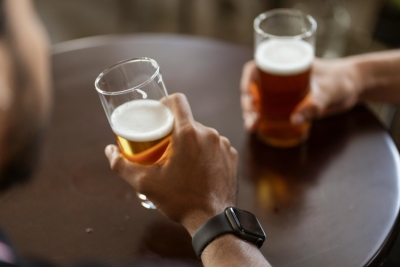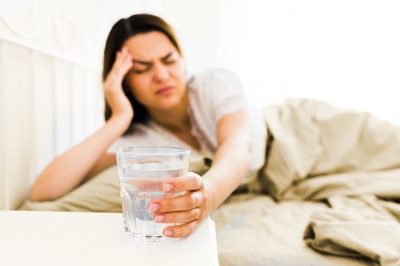In recent years, there has been increasing recognition of the magnitude of the risks of high blood pressure (BP). Elevated BP is an important risk factor for several other cardiovascular diseases. In addition to consequences such as increased incidence of coronary artery disease, cerebrovascular disease, and renal disease, high BP is the main cause of heart failure, atrial fibrillation, valve disease (aortic and mitral valve disease), dementia, among others (1).
Several studies have identified an association between high amounts of alcoholic beverages and higher prevalence and incidence of hypertension. Alcohol is a substance with acute vasodilating properties. However, acute alcohol consumption has a “biphasic” effect on BP, promoting a decrease in BP in the first hours after ingestion and an increase in BP afterwards (2). Men and women who consume moderate to high amounts of alcohol (more than two drinks for men and one drink for women) are at greater risk of developing hypertension. However, the mechanisms involving the effects of alcohol on BP have not yet been elucidated (2).
Some consumers of alcoholic beverages believe that the antioxidant agents present in red wine may act against the consequences of the increase in BP. In order to understand this relationship, a study (3) evaluated a sample of 24 healthy men, non-smokers, aged between 30 and 65 years, who used alcoholic beverages daily. The aim of this study was to determine the effects of regular beer consumption compared to red wine or nonalcoholic red wine on BP function. It is noteworthy that all subjects had normal blood pressure and had no history of cardiovascular problems.
The experiment started with a two-week abstinence followed by a month of abstinence, or by a daily intake of 375 ml of red wine, or 375 ml of non-alcoholic red wine, or 1125 ml of beer. All subjects were monitored during the 4 months of the study.
Beer consumption was associated with an increase in systolic blood pressure by 2.9 mmHg. Individuals who ingested red wine showed an increase in the order of 1.9 mmHg in systolic pressure. Beer increased the heart rate by five beats per minute and wine by 4 heart beats per minute.
Studies continue to show a relationship between alcohol consumption and the risk of high BP. Habitual or heavy drinkers or those who practice binge drinking are more likely to have high BP when compared to abstainers (4). In this way, reduction of excessive alcohol consumption should be encouraged, as well as other modifiable behavioral factors in the general population, such as a healthier lifestyle (healthy eating, physical activity, etc.), especially in individuals at greater risk of developing hypertension.




